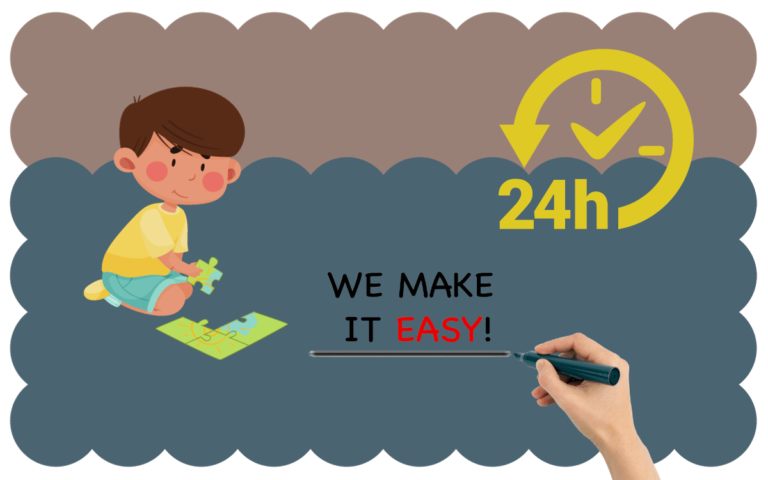Promoting Child Autonomy: How Positive Parenting Does It

Do you want to raise an independent, confident, and capable child? Discover how positive parenting can help you achieve just that!
In today’s fast-paced world, it’s important to equip your child with the skills they need to navigate life with autonomy and self-assurance.
By focusing on building trust and communication, encouraging decision-making skills, nurturing self-confidence and independence, setting age-appropriate boundaries, and fostering critical thinking abilities, positive parenting empowers your child to take charge of their own life.
Promoting child autonomy is essential for fostering independence, confidence, and self-reliance in young individuals.
It’s not about controlling every aspect of their existence, but rather guiding and supporting them as they develop into well-rounded individuals.
So, join us on this journey as we explore the incredible ways positive parenting can promote child autonomy.
Key Takeaways – Promoting Child Autonomy
- Building trust and communication is essential for promoting child autonomy
- Encouraging decision-making skills helps children develop independence
- Nurturing self-confidence and independence allows children to explore their capabilities
- Setting age-appropriate boundaries helps children learn responsibility and accountability
Building Trust and Communication

To build trust and communication with your child, you need to open up and listen actively. Active listening is the key to creating a strong bond with your child. It involves truly focusing on what your child is saying, without any distractions.
By giving your full attention and responding with empathy, you show your child that their thoughts and feelings are important to you. This helps them feel heard and understood, which in turn strengthens the trust between you.
Alongside active listening, open dialogue is crucial for building trust and communication. Encourage your child to express themselves freely, without fear of judgment or criticism.
Create a safe space where they feel comfortable sharing their thoughts and concerns. By fostering open dialogue, you empower your child to express themselves and build a strong foundation of trust and communication in your relationship.
Encouraging Decision-Making Skills

Developing your child’s decision-making skills is essential in promoting their autonomy and independence. By encouraging them to make their own choices, you’re helping them develop problem-solving skills and fostering their assertiveness and self-expression.
Here are three ways you can promote your child’s decision-making skills:
- Provide opportunities for decision-making: Allow your child to make age-appropriate choices, such as what clothes to wear or what activities to participate in. This will help them learn how to evaluate options and make decisions.
- Support their decision-making process: Offer guidance and advice when needed, but also give them space to think through their choices independently. This will empower them to trust their own judgment and develop confidence in their decision-making abilities.
- Foster open communication: Create a safe and non-judgmental environment where your child feels comfortable expressing their thoughts and opinions. Encourage them to articulate their reasoning behind their decisions, and listen attentively to their perspective. This will help them develop communication skills and strengthen their ability to assert themselves.
Nurturing Self-Confidence and Independence

Allow your child to explore and discover their own capabilities, fostering a sense of self-confidence and independence. Encouraging them to take on new challenges and make decisions for themselves helps in developing problem-solving skills and boosts their self-esteem.
Create an environment that values their opinions, ideas, and choices, thus fostering self-expression. Encourage them to try new activities, explore their interests, and pursue their passions.
Be there to support and guide them, but also give them the freedom to learn from their mistakes and make their own choices.
Setting Age-Appropriate Boundaries

Establish clear and specific limits that align with your child’s age and abilities. This is an essential aspect of setting age-appropriate boundaries. By doing so, you’re providing your child with a sense of structure and guidance while also allowing them to explore and grow within those limits.
Here are three key ways to effectively establish these boundaries:
- Establishing clear expectations: Clearly communicate your expectations to your child, letting them know what’s acceptable and what’s not. This helps them understand the boundaries and what’s expected of them.
- Allowing natural consequences: When your child crosses a boundary, allow them to experience the natural consequences of their actions. This helps them learn responsibility and accountability for their choices.
- Encouraging open communication: Create an environment where your child feels comfortable discussing their thoughts and feelings. This allows for a healthy exchange of ideas and helps you both understand each other better.
Fostering Critical Thinking Abilities

Encouraging your child to think critically enhances their problem-solving skills and decision-making abilities. By fostering critical thinking, you’re helping them develop effective problem-solving strategies that can be applied in various situations.
One way to do this is by asking open-ended questions that encourage them to think deeply and examine different perspectives. Encourage them to brainstorm and generate multiple possible solutions to a problem, fostering creativity in the process.
Allow them to make decisions, even if they make mistakes, as this will help them learn from their experiences and develop their critical thinking abilities.
Provide opportunities for them to engage in activities that require them to analyze, evaluate, and think critically. By doing so, you’re empowering your child to become independent thinkers and problem solvers, preparing them for success in the future.
Summary
In conclusion, positive parenting is a powerful tool in promoting child autonomy. By fostering trust and open communication, encouraging decision-making skills, nurturing self-confidence and independence, setting age-appropriate boundaries, and fostering critical thinking abilities, parents can empower their children to become independent, capable individuals.
By using this approach, parents can create a supportive environment where children feel empowered to make their own choices, leading to their personal growth and development.
So, embrace positive parenting and watch your child flourish!
Frequently Asked Questions
What Are Some Strategies for Managing Power Struggles and Conflicts Between Parents and Children When Promoting Child Autonomy?
When managing power struggles and conflicts with your child, focus on conflict resolution. Encourage open communication, active listening, and problem-solving. Empower your child to make decisions and express their thoughts. Positive parenting promotes autonomy and healthy relationships.
How Can Parents Balance the Need for Setting Boundaries With Allowing Their Child to Make Their Own Decisions?
You can balance setting boundaries and fostering independence by providing clear guidelines while also allowing your child to make decisions within those boundaries. This promotes their autonomy while ensuring their safety and well-being.
Are There Any Potential Challenges or Drawbacks to Promoting Child Autonomy Through Positive Parenting Techniques?
There may be potential challenges and drawbacks to promoting child autonomy through positive parenting. However, it’s important to remember that managing conflicts, setting boundaries, and supporting critical thinking can ultimately lead to self-confidence and empowerment.
What Are Some Practical Tips for Parents to Encourage Their Child’s Critical Thinking Abilities in Everyday Situations?
Encourage curiosity and stimulate problem-solving by asking open-ended questions, providing opportunities for exploration, and allowing your child to make decisions. Let them learn from everyday situations and watch their critical thinking abilities grow.
How Can Parents Effectively Support and Nurture Their Child’s Self-Confidence and Independence Without Being Overprotective or Neglectful?
To effectively support and nurture your child’s self-confidence and independence, use supportive parenting techniques. Encourage them to make decisions, take on responsibilities, and learn from their mistakes. Be there for guidance and encouragement, without being overprotective or neglectful.


